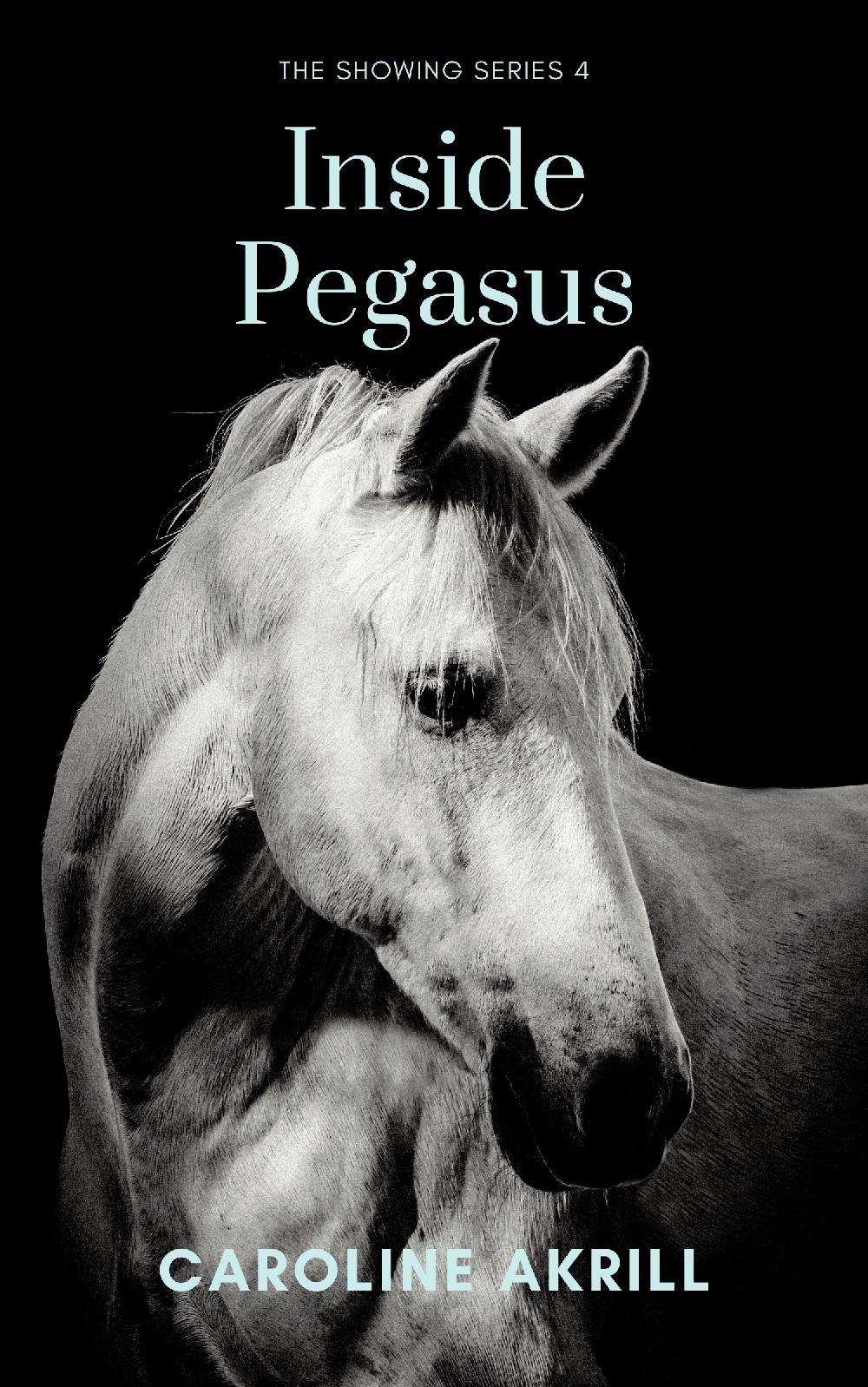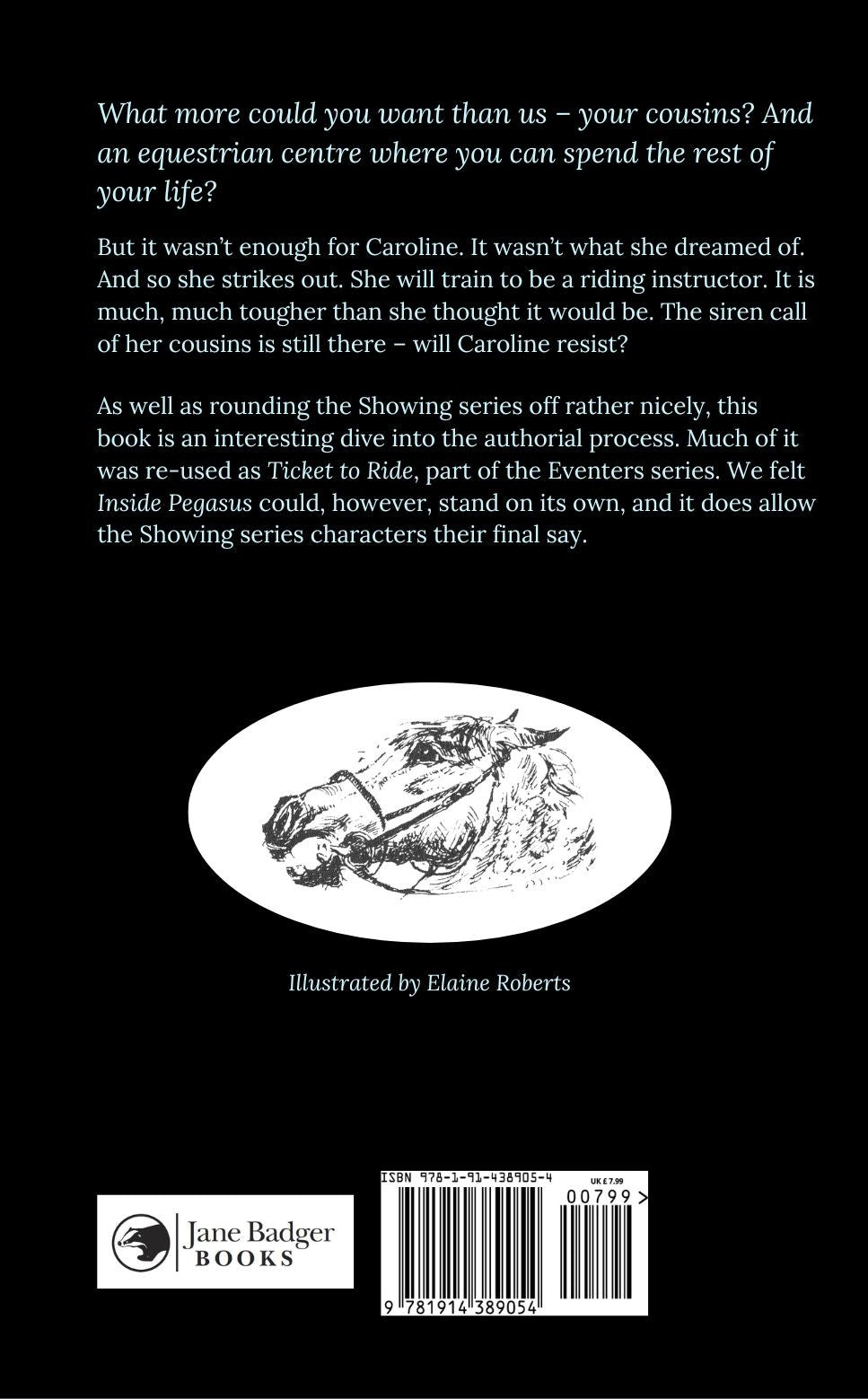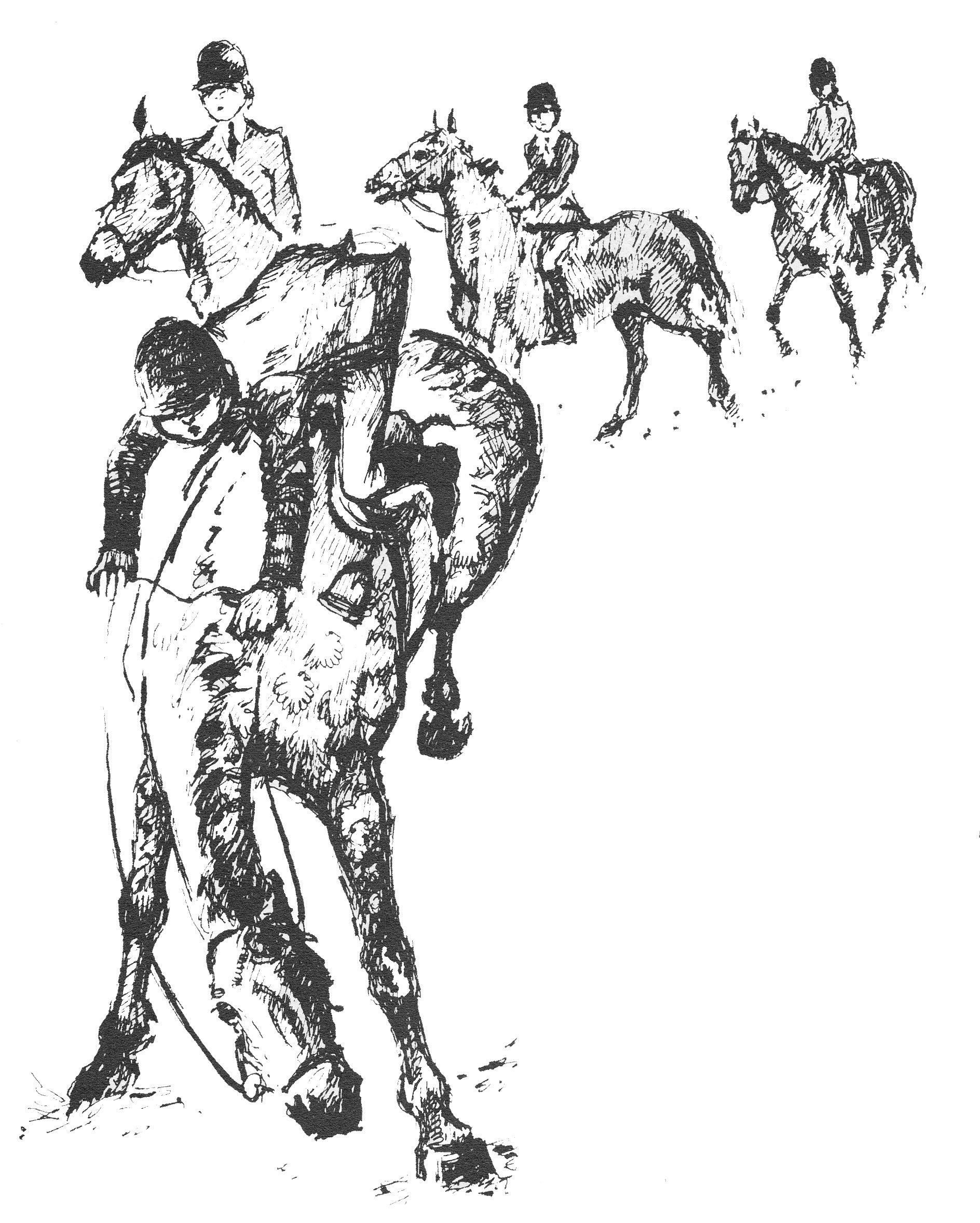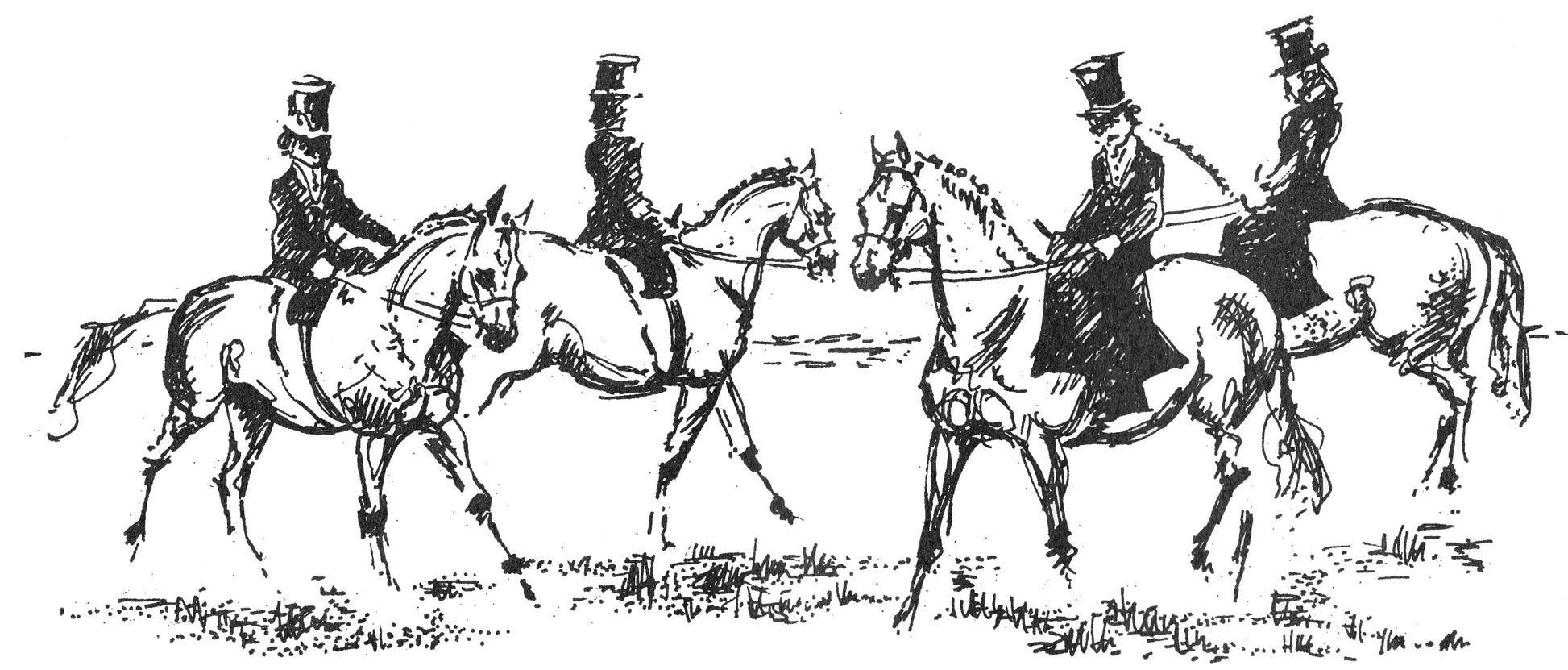Jane Badger Books
Caroline Akrill: Inside Pegasus (paperback)
Caroline Akrill: Inside Pegasus (paperback)
Illustrator: Elaine Roberts
Couldn't load pickup availability
Share
What more could you want than us – your cousins? And an equestrian centre where you can spend the rest of your life?
That's what Caroline's cousins want to know. But it wasn’t enough for Caroline. It wasn’t what she dreamed of. And so she strikes out. She will train to be a riding instructor. It is much, much tougher than she thought it would be. The siren call of her cousins is still there – will Caroline resist??
As well as rounding the Showing series off rather nicely, this book is an interesting dive into the authorial process. Much of it was re-used as Ticket to Ride, part of the Eventers series. We felt Inside Pegasus could, however, stand on its own, and it does allow the Showing series characters their final say.
Included too are articles by Caroline Akrill on her first novel, by Karen Bush on life as a working pupil, and by Jane Badger on a real-life training establishment: Porlock Vale.
The book was written in the 1980s, so readers today should note that attitudes towards riding were often rather different to today!
Showing series 4
Page length: 104
Original publication date: 2021
When will I get my book?
When will I get my book?
Paperbacks are printed specially for you and sent out from our printer. They are on a 72-hour turnaround from order to being sent out. Actual delivery dates will vary depending on the shipping method you choose.
Read a sample
Read a sample
“Hrmmm.”
The Chief Instructor looked down at my application form and frowned. “Worked in a showing stable… started a stud management course, left after a week… been a secretary, resigned because of lack of prospects.” He drew his eyebrows together and looked over his desk at me in sight disbelief. “And all this in less than a year?”
Put like that it didn’t sound too good. It made me sound like a fly-by-night, a will o’ the wisp. Clearly, it was time to appear decisive. “I want to be a riding instructress,” I said, with far more conviction than I felt. “I have set my heart upon it.”
The Chief Instructor wasn’t impressed. He shuffled the papers impatiently. “And how can I be sure that by tomorrow you won’t have set your heart upon something else, eh?” he snapped. “How am I to know that? You have had three jobs in a less than a year. You have tried and discarded them like gowns in a dress shop. Like shoes no longer in fashion.”
All this was showing me in a very poor light. “Actually,” I said defensively, “it wasn’t quite like that. It isn’t really as bad as it sounds. The showing stable belonged to my cousins and so did the riding centre where I was a secretary. I stayed with them for three years but now… well, not to put too fine a point on it, I’ve left.”
“What you are actually saying, Miss Harrison,” the Chief Instructor said tersely, “is that you were dismissed.”
“I’m not saying that at all,” I said indignantly. “I wasn’t dismissed. I left!”
“Why?” the Chief Instructor said.
I stared at him blankly.
“Miss Harrison,” the Chief Instructor said irritably, “I asked why you left.”
The thing was that actually having the question thrust upon me, face to face, as it were, I couldn’t think of an answer. I mean, for a start, there had been the frustration of being taken absolutely for granted, of having one’s life permanently organised for one, without even a ‘by your leave’. Then there was the feeling that there was an awful lot going on in the world outside that one would never, ever, know anything about. And then there was Simon… But I couldn’t go into the complexities of all this with the Chief Instructor.
“I could have trailed along in their wake forever,” I said, “but one can’t be the poor relation for the whole of one’s life. One would lose one’s identity.”
The Chief Instructor couldn’t think of anything to say for a moment. Then he said in an exasperated tone, “And what about the stud management course?”
“I wanted to get some qualifications,” I said. I launched into a long explanation. How I had imagined the woolly foals and the gentle brood mares and the proud, beautiful stallions with flowing manes, and the white-railed paddocks and the neat rows of foaling boxes with geraniums in tubs outside the doors. And how my dreams had evaporated in a reality of shoving, kicking, jostling youngstock, of mud-filled gateways and icy mornings when the ground was like iron and the buckets stuck to my fingers; of bad-tempered stallions pacing their boxes like caged tigers, and unspeakable pickled things sitting on the window-ledges. I did my best to explain all these things to the Chief Instructor, and at the end of it he leaned back in his chair and frowned. “And now you want to be an instructress,” he said.
“Yes,” I said.
“Hrmmm,” he said.
This seemed to bring us back to where we had started. It was discouraging. But after a moment of deliberation, the Chief Instructor sat upright in his chair. “Dedication,” he announced, “is of paramount importance.”
“I know,” I said. “I’m prepared to be dedicated.”
“A British Horse Society training programme is not something to be embarked upon lightly,” he said.
“Oh, but I wouldn’t,” I protested. “I mean, I’m not. Honestly.”
“There is no guarantee of a place at the end of the trial period,” he warned. “Colonel Leapingwell only accepts the cream of the cream.”
“I feel sure,” I said, “that he takes only the very best people.”
There was a frigid silence broken only by the tap-tapping of the Chief Instructor’s pencil on the desk. To fill in the time, I stared at his boots, which were ledged, out of habit, toes up and heels down, on the rail beneath. They were long and brown and beautifully cut. They fitted so perfectly that I couldn’t imagine how he could possibly have got them past his ankles.
Suddenly the Chief Instructor cleared his throat in a perfunctory manner. He jumped to his feet, pulled open the office door and stepped outside. After a minute or two of sitting in the empty office, it occurred to me that I had been dismissed. I was astonished by such brusque treatment, and also annoyed. After all, there had been nothing on the application form to indicate that one had to be the cream of the cream to be accepted on a two-week trial. I decided to go after the Chief Instructor and tell him exactly what I thought of such discrimination; and whilst I was about it, I would demand the return of my deposit fee. I snatched up the case containing my new two-way-stretch breeches with cream suede strappings, and the navy blue deep-pile high crown riding hat, made to measure at vast expense by Herbert Johnson of Bond Street, and flew out of the door. I almost collided with the Chief Instructor, who was waiting on the other side of it, tapping his toe impatiently on the gravel.
“Quick sharp, now,” he said irritably, as if he had been waiting for hours. “Snip snap. Can’t hang about for ever. Haven’t got all day, y’know.”
I opened my mouth to protest, but he was already striding away along one of the rows of loose boxes which stretched endlessly in every direction. I set off after him at a jog-trot, my case bumping uncomfortably against my legs. A few high-class horses regarded my progress with interest, their sleek heads hanging over white-painted doors. Half-way along the block, the Chief Instructor came to an abrupt halt. In my efforts to avoid bumping into him, my case hit a bloated lead water-trough. The hollow boom brought a few more heads over the stable doors.
“This,” the Chief Instructor said, flinging open a stable door, “is Winter.”
I wondered if I should have heard of Winter. I thought that perhaps he was a show jumper, a dressage horse or even a steeplechaser, pride of the yard and a household name; but I didn’t like to ask. I didn’t want to show my ignorance. So I just said, “Well, well,” in a surprised sort of voice, and walked into the stable.
Winter was a grey horse about 15.3hands high.
Observing my entrance, he flattened his ears and snaked his neck up and down, showing his teeth.
“He doesn’t seem to be very friendly,” I said, backing off as the horse turned his hindquarters towards me and shuffled experimentally, prior to taking aim with a back foot.
The Chief Instructor looked disapproving; as if to expect friendly behaviour from a horse was not only irrelevant, but frivolous. “This stable and its occupant,” he informed me, “have been allocated to you for the period of your trial.”
He made it sound as if I had committed a criminal offence. But it was still good news. I needed to win a Working Pupil Scholarship because I couldn’t afford to pay for my training. My parents had already paid for the stud management course; and because I had broken my contract, none of the money had been refunded. This had made me very unpopular at home; and as I had earned precious little working for my cousins, I was in dire financial straits, especially as, after paying the deposit and the course fee I had splashed out the last of my money on the new hat and breeches, to boost my self-confidence. I was even prepared to be grateful for the allocation of the grey horse, who obviously hated me on sight. As it was, I was relieved to get myself and my suitcase out of the stable unscathed.
We resumed our march along the row of stables. The grey horse put his head over the door to watch us go. He stretched out his snowy neck and put his ears forward, and under his silky mane his eyes were dark and beautiful. He looked a picture-book horse, the kind one sees on calendars and birthday cards; but there was malice in his heart. I felt it.
As we approached the end of the block, I thought I heard music. After a few more strides, I knew I could. It was very loud, noisy music, and it seemed rather out of place. I could see that the Chief Instructor had heard it as well; because, his mouth set in a firm line, he tucked in his chin and increased speed. I had to run to keep up.
In the last stable of all, a slight girl in denim dungarees and a checked shirt was grooming a chestnut. As our heads appeared over the lower door she reached out hastily and snapped off a transistor radio disguised as an orange, which was suspended round the horse’s neck on a tail bandage like a giant necklace.
The Chief Instructor looked as if he might blow a gasket. “Transistor radios are not permitted in the stables, Miss Hobbs,” he barked. “Consider yourself warned.”
Miss Hobbs looked amazed. She opened her mascara-edged eyes very wide and tucked her fragile blonde hair behind her ears. “I never knew that,” she said. “Still, I’ve only been here five minutes; I can’t be expected to know everything, can I?”
“And neither,” the Chief Instructor added in an outraged voice, “are you allowed to wear coloured nail varnish on these premises!”
Miss Hobbs put her scarlet talons behind her back and shrugged her narrow shoulders. “Lost me remover,” she said airily. “Can’t find it nowhere.” She winked at me. The Chief Instructor noticed and shot me a suspicious look. I wondered if Miss Hobbs was an example of the cream of the cream. If so, I thought that life at the Leapingwell Equestrian Training Establishment might suit me very well.
Who's in the book?
Who's in the book?
Humans: Caroline, Freda, June, Janice, Erika, Simon, Becky, Sarah, the Chief Instructor, The Sheep
Equines: Winter, the palomino, the piebald
Other titles published as:
Other titles published as:
Series order
Series order
1. Caroline Canters Home
2. I'd Rather Not Gallop
3. If I Could Ride
4. Inside Pegasus
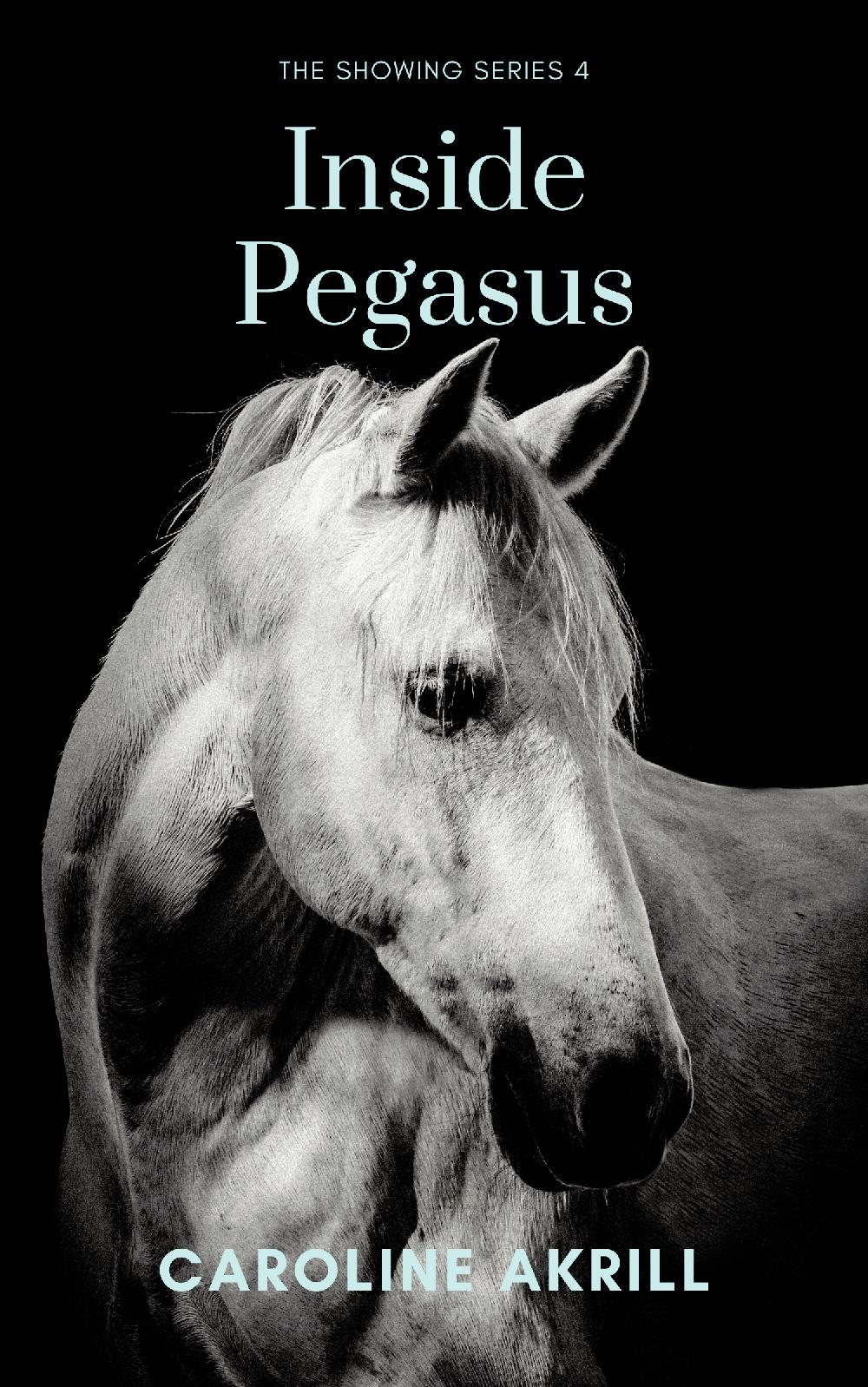
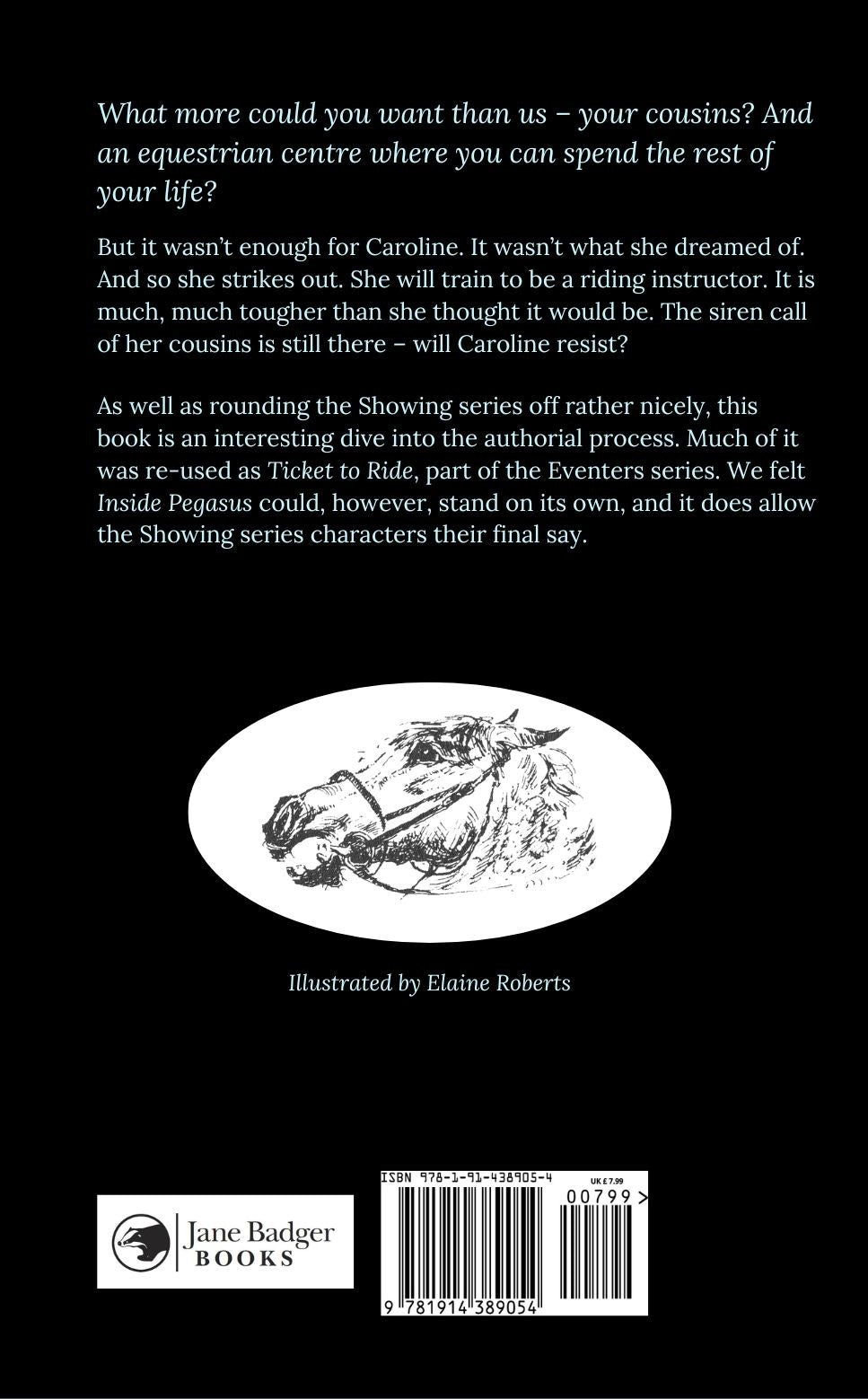
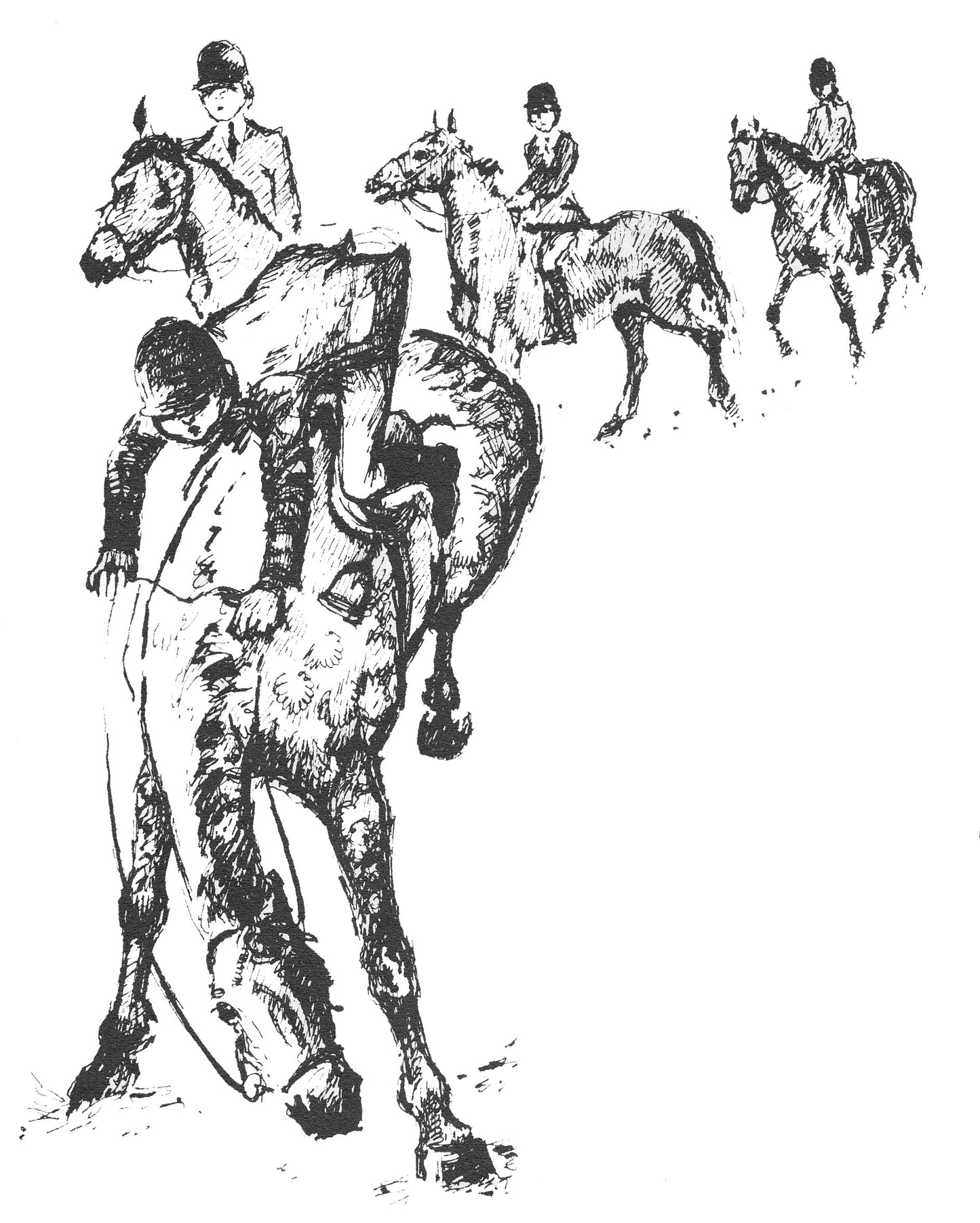
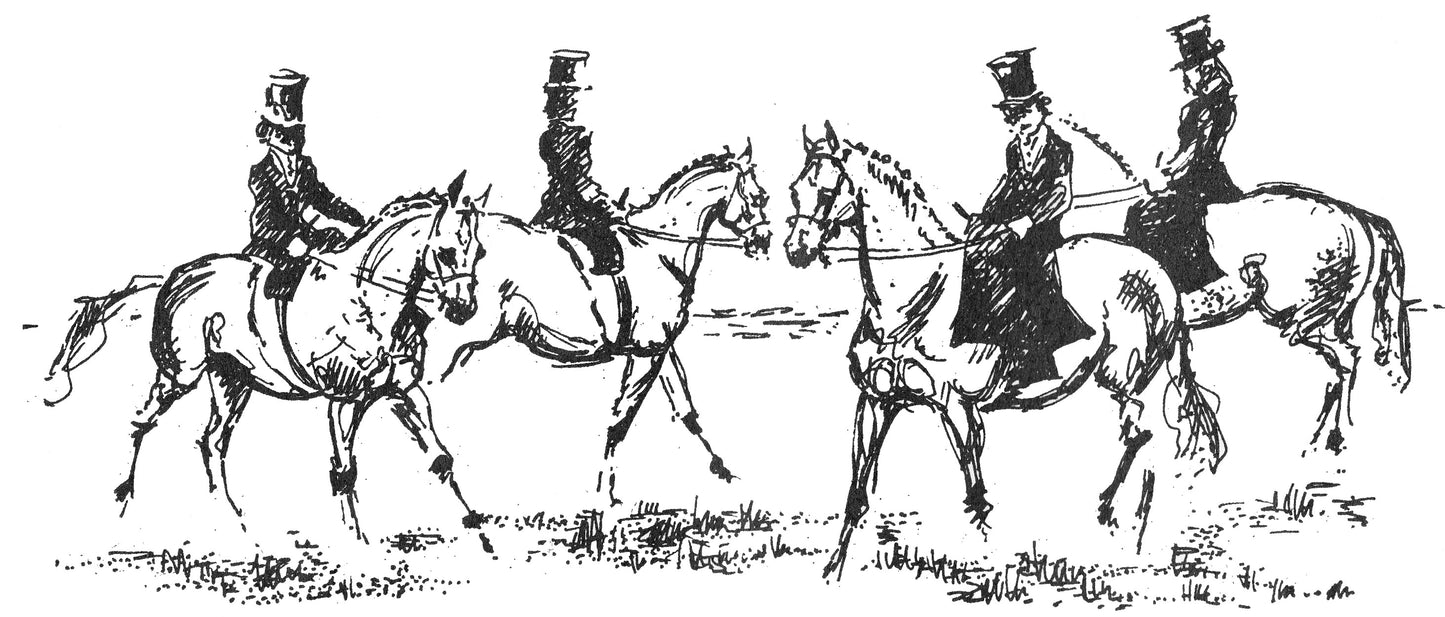
Excellent

